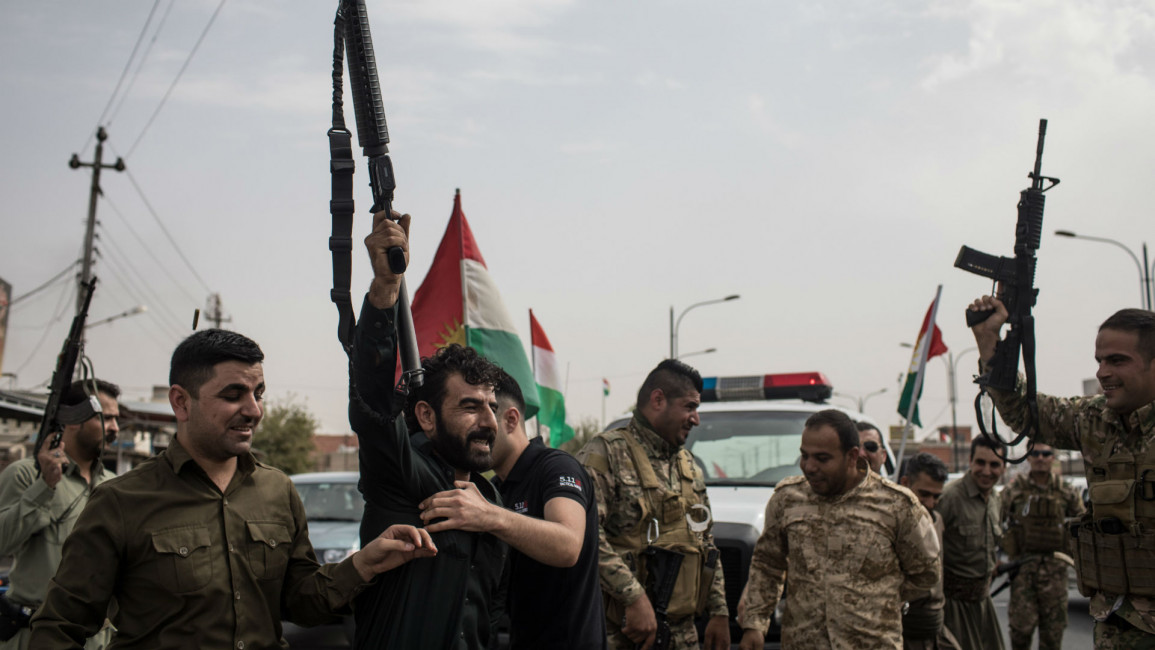Iraqi parliament demands 'troop deployment' following Kurdish referendum vote
Iraq's legislature demanded that military forces be sent to disputed areas in the country's north, during a heated parliamentary session in Baghdad on Monday.
The call comes as the country's Kurdish autonomous regions hold a controversial referendum on independence from Iraq. The vote has been strongly opposed by the Baghdad government and neighbouring countries with their own Kurdish minorities.
"Parliament demands that the head of the army (Prime Minister Haider al-Abadi) deploy forces in all of the zones the autonomous region of Kurdistan has taken control of since 2003," a parliamentary resolution said.
While neighbouring countries have raised concerns due to their sizeable Kurdish populations, the United States and other Western nations have also voiced opposition to the referendum.
The ballot's disruptive effect on the region, Washington has argued, could have a negative effect on the combined effort against the Islamic State group.
Turkey, meanwhile, has warned that the referendum's outcome could lead to a global conflict.
Iraq's federal government rejects the referendum, with Nouri al-Maliki, a former prime minister and current vice president, saying on Monday that the vote is a "declaration of war on the unity of the Iraqi people".
Twitter Post
|
Control over Iraq's north is divided between autonomous Erbil-controlled Kurdish areas recognised by Baghdad and disputed territories, including Kirkuk.
In the run up to Monday's historic vote, Kurdish militias have asserted their authority with Peshmerga outposts protecting oil fields in Kirkuk - one of the key disputed provinces.
Other areas claimed by Baghdad and Erbil are parts of Nineveh, Diyala and Salaheddin provinces
Weeks before the vote, Washington, a key ally of the Kurds, urged caution over the disputed areas and called upon Kurdish leaders to "enter into serious and sustained dialogue with Baghdad".
"Holding the referendum in disputed areas is particularly provocative and destabilising," a White House statement read.


![Minnesota Tim Walz is working to court Muslim voters. [Getty]](/sites/default/files/styles/image_684x385/public/2169747529.jpeg?h=a5f2f23a&itok=b63Wif2V)




![Debris near Rafic Hariri International Airport [Getty]](/sites/default/files/styles/image_330x185/public/2176162423.jpeg?h=a5f2f23a&itok=MCSK9mkM)
![An Israeli air strike on Jabalia killed teenage journalist Hassan Hamad [Screengrab/X]](/sites/default/files/styles/image_330x185/public/2024-10/hassan%20hamad1.jpg?h=c12e0b96&itok=Rd_dyCVp)
